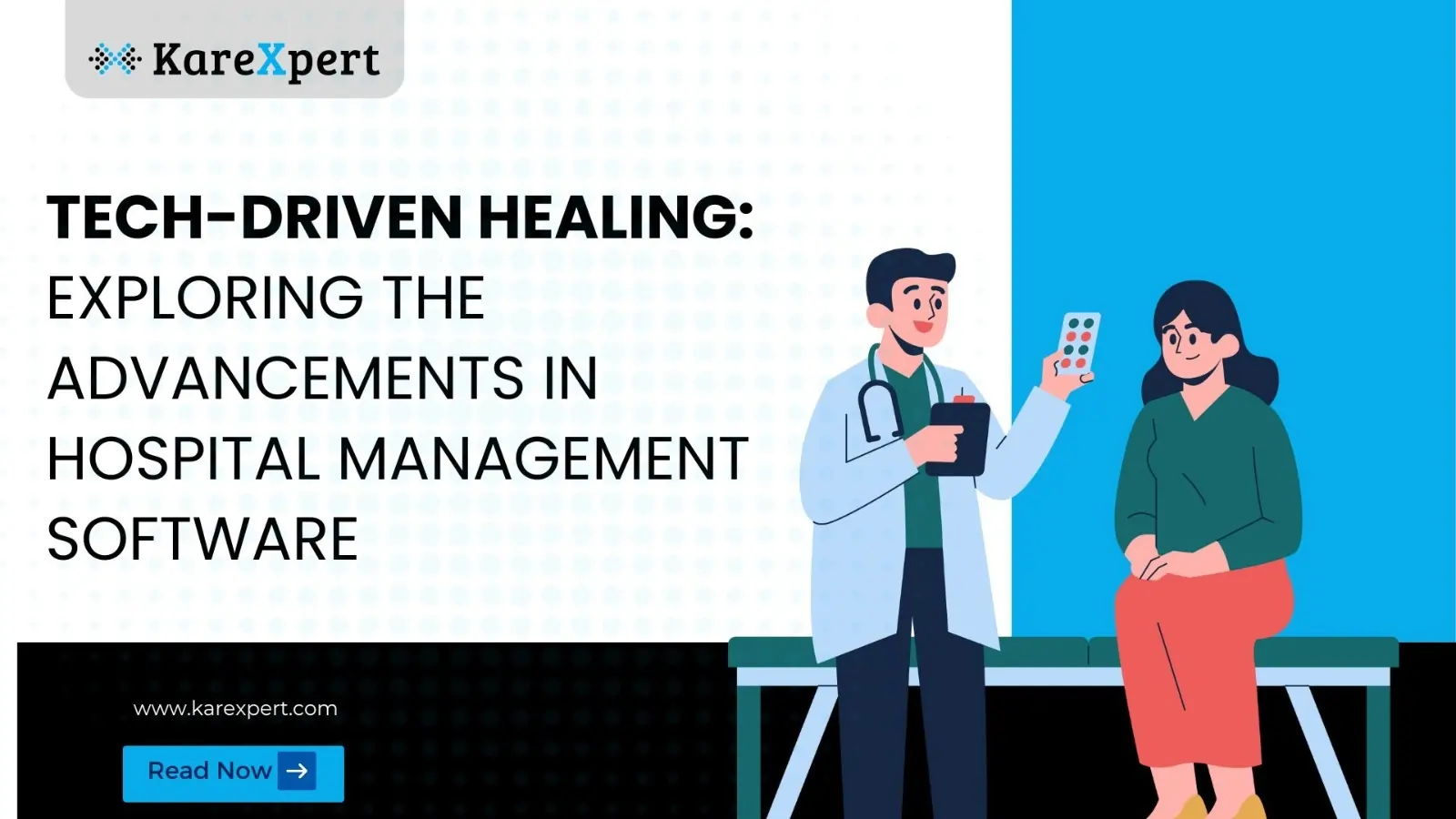Tech-Driven Healing: Exploring the Advancements in Hospital Management Software

Introduction: The Digital Revolution in Healthcare
The dawn of the 21st century heralded significant technological advancements across several sectors, and healthcare has been at the forefront of this digital revolution. With the introduction of sophisticated hospital information management software, medical institutions worldwide have witnessed a paradigm shift in their operational and care delivery processes.
From Paper to Digital: A Fundamental Transition
The digital transformation within hospitals began with the fundamental shift from paper based record-keeping to electronic systems. This transition was not a mere change in data storage but a comprehensive reimagining of hospital management. Today’s hospital information management software offers a consolidated platform for clinical, financial, and administrative data. It streamlines multiple aspects of hospital functionality, creating an ecosystem that fosters tech-driven healing.
Electronic Health Records: The Cornerstone of Modern Healthcare
One of the most significant advancements in hospital management software is the integration of Electronic Health Records (EHRs).. EHRs provide a digital version of a patient’s paper chart and include a range of data such as medical history, diagnoses, treatment plans, immunization dates, allergies, radiology images, and laboratory results. The interoperability feature of EHRs allows sharing of patient information across different healthcare settings, enabling a cohesive treatment approach by various healthcare providers.
Pharmacy Information Systems: Enhancing Medication Management
In addition to EHRs, modern hospital management software incorporates modules like Pharmacy Information Systems, which significantly improve the management and distribution of medications. The automation and analytics capabilities of these systems have considerably reduced medication errors, ensuring that the right patient receives the right dosage at the right time.
Patient Portals: Empowering Patient Engagement
Another thrilling development is the deployment of intuitive patient portals. These platforms have elevated patient engagement by providing them with direct access to their health information, enabling them to schedule appointments, communicate with their healthcare providers, and manage their health better.
Telemedicine: Remote Healthcare Delivery
Telemedicine is another facet where hospital management software has excelled, particularly highlighted by the recent pandemic. By providing virtual consultation capabilities, hospitals have been able to extend their services to patients who are unable to visit in person. This technology has been pivotal in providing continuous care while ensuring the safety of both patients and healthcare workers.
AI and Machine Learning: The Future is Now
Artificial Intelligence (AI) and Machine Learning (ML) have also been integrated into hospital management software. These technologies have the capacity to learn from data, identify patterns, and make predictions, which is instrumental in diagnostic assistance, personalized treatment plans, and predictive analytics for patient risk assessment.
Operational Excellence: Beyond Patient Care
Hospital information management software has not only revolutionized patient care but also optimized back-end operations. With features such as resource scheduling, inventory management, and automated billing, these systems have made hospital operations more efficient and cost-effective. This digital shift has not just translated into better care but has also allowed hospitals to allocate resources more judiciously.
Data Security: Safeguarding Patient Information
Furthermore, the software’s robust security protocols ensure the protection of sensitive patient data, aligning healthcare institutions with legal and regulatory compliance requirements. This assures patients that their data is secure, building their trust in the healthcare system.
Overcoming Implementation Challenges
However, the journey hasn’t been devoid of challenges. Like any significant change, the transition to advanced hospital information management software requires considerable investment in both time and money. Moreover, there is also the necessity for ongoing training and technical support to ensure all users are proficient with the new system.
The Road Ahead: Emerging Technologies
Looking ahead, the future of hospital management software is bright with the promise of even more revolutionary technologies. The integration of blockchain technology, advanced analytics, and virtual and augmented reality experiences resonate with the possibility of further advancing patient care and hospital management.
Conclusion: Transforming Healthcare Through Technology
In conclusion, the advancements in hospital information management software are carving a path toward tech-driven healing that is patient-centric and operationally dynamic. As the healthcare industry progresses, these digital tools will remain critical in navigating the complex landscape of modern healthcare, continuing to transform it for the better.
Hospitals that embrace these technological advancements open themselves to a world where healing is supported by technology, a world where they can offer the highest standards of care. The evolution of hospital management software is indeed a leap towards a future where tech and healthcare are inextricably linked, and the benefits are reaped by both providers and patients alike.
